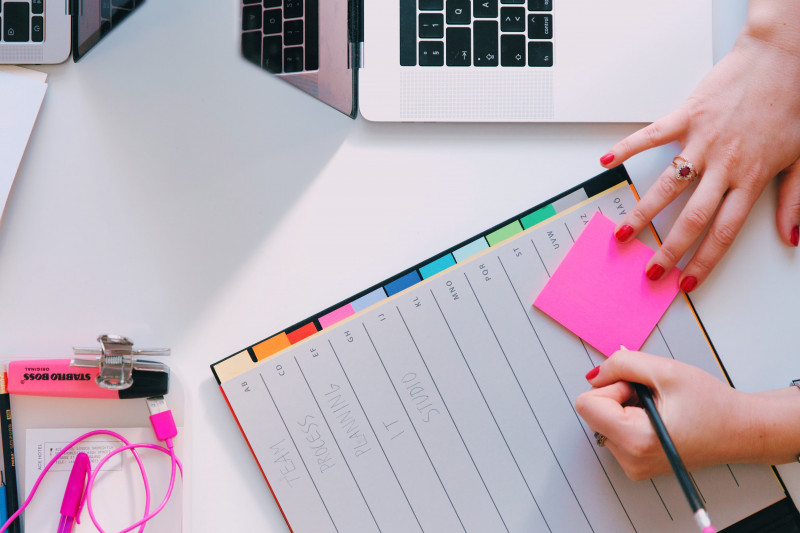Let’s face it—studying can sometimes feel overwhelming, boring, or even pointless if you’re not seeing results. Whether you’re prepping for exams, juggling multiple subjects, or trying to absorb a new skill, the key isn’t always studying harder—it’s studying smarter. That’s where these top study hacks that actually work come in.
In this article, we’ll explore real, science-backed strategies that can help you improve focus, retain more information, and make the most of your study time. No fluff—just practical tips you can start using today.
1. Use Active Recall Instead of Passive Reading
One of the biggest mistakes students make is reading and rereading their notes. It feels productive, but it’s not the most efficient way to learn.
Active recall means testing yourself instead of just reviewing material. This forces your brain to retrieve the information, strengthening your memory.
How to do it:
- Close your notes and write down everything you remember.
- Use flashcards (physical or apps like Anki/Quizlet).
- Answer practice questions or create your own.
Why it works: Retrieval practice has been proven to improve long-term memory more effectively than simply reviewing content.
2. Master the Pomodoro Technique
The Pomodoro Technique is one of the top study hacks that actually work for boosting focus without burning out.
How it works:
- Study for 25 minutes (no distractions!)
- Take a 5-minute break
- Repeat 4 times, then take a longer break (15–30 mins)
This keeps your brain fresh and helps avoid mental fatigue, especially during long study sessions.
Bonus Tip: Use a dedicated app like Forest, Tomato Timer, or Focus Keeper to stay consistent.
3. Teach What You’ve Learned
One of the most underrated (but powerful) study hacks is teaching the material to someone else—or even to yourself!
Called the Feynman Technique, this method involves explaining complex ideas in simple terms. If you can teach it, you truly understand it.
How to use it:
- Grab a whiteboard or notebook
- Pretend you’re teaching a class or a friend
- Break the topic down into simple language
This method uncovers any weak spots in your understanding and reinforces what you already know.
4. Use Brain-Boosting Music or Sounds
Certain types of music and sounds can enhance your ability to concentrate. Not all music helps, though—avoid lyrics or distracting beats.
What works:
- Lo-fi beats
- Classical music (especially Baroque)
- Nature sounds (rain, forest, ocean)
- Binaural beats (for deep focus)
Use Spotify, YouTube, or apps like Brain.fm to find study-friendly soundtracks.
5. Set Clear, Mini Goals for Each Session
Studying without a goal is like driving without a map. Instead of saying, “I’m going to study biology,” break it down:
“I’m going to review the digestive system and complete 10 quiz questions in 45 minutes.”
This makes your session more focused and manageable—and checking off goals feels super motivating.
6. Switch Up Your Study Environment
Believe it or not, your brain retains information better when you study in different locations. It’s called context-dependent memory.
Try rotating between:
- A quiet library
- Your favorite café
- A home desk setup
- Even outdoors, if possible
The change in scenery keeps things fresh and helps you focus better.
7. Use Digital Tools & Study Apps
There are tons of free or affordable apps that can help streamline your studying. Here are a few favorites:
- Anki / Quizlet – Spaced repetition flashcards
- Notion / Evernote – Organize notes and study plans
- Grammarly / Hemingway – Edit essays and assignments
- Forest / Freedom – Block distractions while you study
- Google Keep / Todoist – Set study reminders and to-do lists
Leveraging the right tech makes studying smoother and more efficient.
8. Fuel Your Brain with the Right Snacks
Brain food isn’t just hype—it really matters.
What to eat:
- Nuts (walnuts, almonds)
- Berries (blueberries are great for memory)
- Dark chocolate (yes, in moderation!)
- Eggs, leafy greens, and fish (omega-3s boost focus)
Stay hydrated, too. Even mild dehydration can reduce concentration and memory performance.
9. Don’t Skip Sleep—It’s Your Secret Weapon
Pulling an all-nighter might seem like a badge of honor, but it’s one of the worst things you can do before a test or project.
Your brain consolidates memory while you sleep. Skipping sleep ruins your ability to focus, retain info, and think critically.
Aim for 7–9 hours of sleep, especially the night before a big exam. It’ll do more for your success than an extra hour of last-minute cramming.
10. Try Meditation for Better Focus
A few minutes of daily mindfulness can drastically improve your ability to concentrate and reduce anxiety.
Try this:
- Use an app like Headspace or Calm
- Do 5–10 minutes of breathing exercises before studying
- When your mind wanders, gently bring your attention back
Meditation isn’t just for yoga retreats—it’s a mental gym for your brain.
Conclusion
These top study hacks that actually work aren’t just trendy—they’re backed by science, trusted by high achievers, and proven to make your study sessions more effective.
To recap:
- Use active recall and teach what you’ve learned
- Try the Pomodoro technique to avoid burnout
- Set clear goals and use smart apps to stay organized
- Switch up your environment and listen to focus-friendly music
- Fuel your body and mind with proper rest, nutrition, and mindfulness
Remember, consistency beats cramming. Start implementing just a few of these hacks, and you’ll be surprised at how much more productive (and confident) you feel during your next study session.




